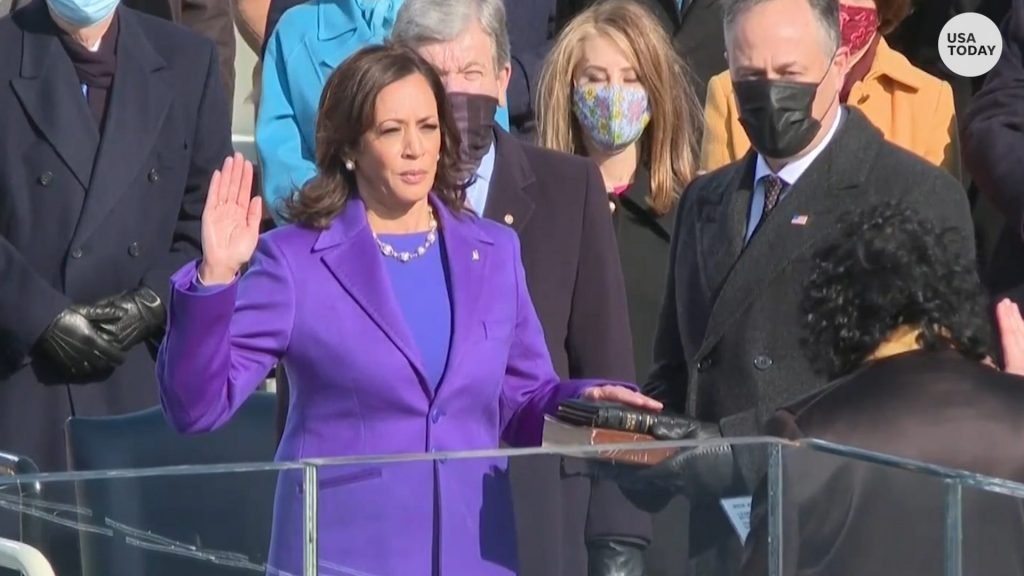After two decades of focus on Afghanistan, the withdrawal of the United States this week allowed the country to shift its concentration to the east, where superpower rival China is now the number one priority.

US Vice President Kamala Harris delivers a speech in Singapore during a visit to boost US ties in the region against perceived threats from China
In a sign of Washington’s strategic turn, Vice President Kamala Harris was in Southeast Asia last week even as the US withdrawal from Afghanistan moves into its turbulent final days, fueling pushback from US allies against the region’s giant Hoping to strengthen.
His visits to Singapore and Vietnam were seen as an attempt by President Joe Biden’s administration to reassure Asian allies, who were somewhat upset by the American withdrawal from Kabul following the abrupt collapse of the Afghan government, which Washington called. Supported for about 20. years.
Ryan Hayes, a foreign policy expert at the Brookings Institution, said the US withdrawal defeat from Afghanistan will not have a lasting impact on Washington’s credibility in Asia.
“America’s standing in Asia is an act of shared interests with our allies in balancing China’s rise and maintaining the long-lasting peace that underpins the region’s rapid development,” Haas said.
Lawmaker Adam Smith, who heads the Armed Forces Committee in the House of Representatives, said America’s exit from Afghanistan is unlikely to change the balance between the United States and rival superpowers Russia and China.
He dismissed suggestions on Tuesday that a seemingly momentary display of weakness by the Americans could encourage China to attack Taiwan or Russia to attack Ukraine, for example.
Smith said during an online Brookings conference, “I think anyone who thinks that their [Russia or China’s] calculations have changed significantly since we pulled the last 2,500 troops out of Afghanistan — I really don’t. is visible.”
“There are so many other issues that are going to make Russia and China feel like whether or not they have the potential to be aggressive in those parts of the world,” he said.
Derek Grossman, a former Pentagon official and now a defense expert at the RAND Corporation think tank, said China could gain advantage in fostering good relations with the Taliban, the militant Islamist group the US military re-established power in Afghanistan in August. Fought for 20 years before being captured. 15.
Beijing may decide quickly to recognize the Taliban government, even as Washington and other Western governments hope to persuade Afghanistan’s new rulers to soften their harsh policies.
Grossman said, “China, as a new great power in competition with the United States, perhaps seeks to demonstrate its unique way of dealing with world events, which is – often reflexively – in line with Washington’s approach. The opposite happens.”
“Recognizing Taliban-run Afghanistan will contribute to the perception that it is Beijing, and no longer Washington, that is now setting the agenda and shaping the regional order of the future,” he said.

